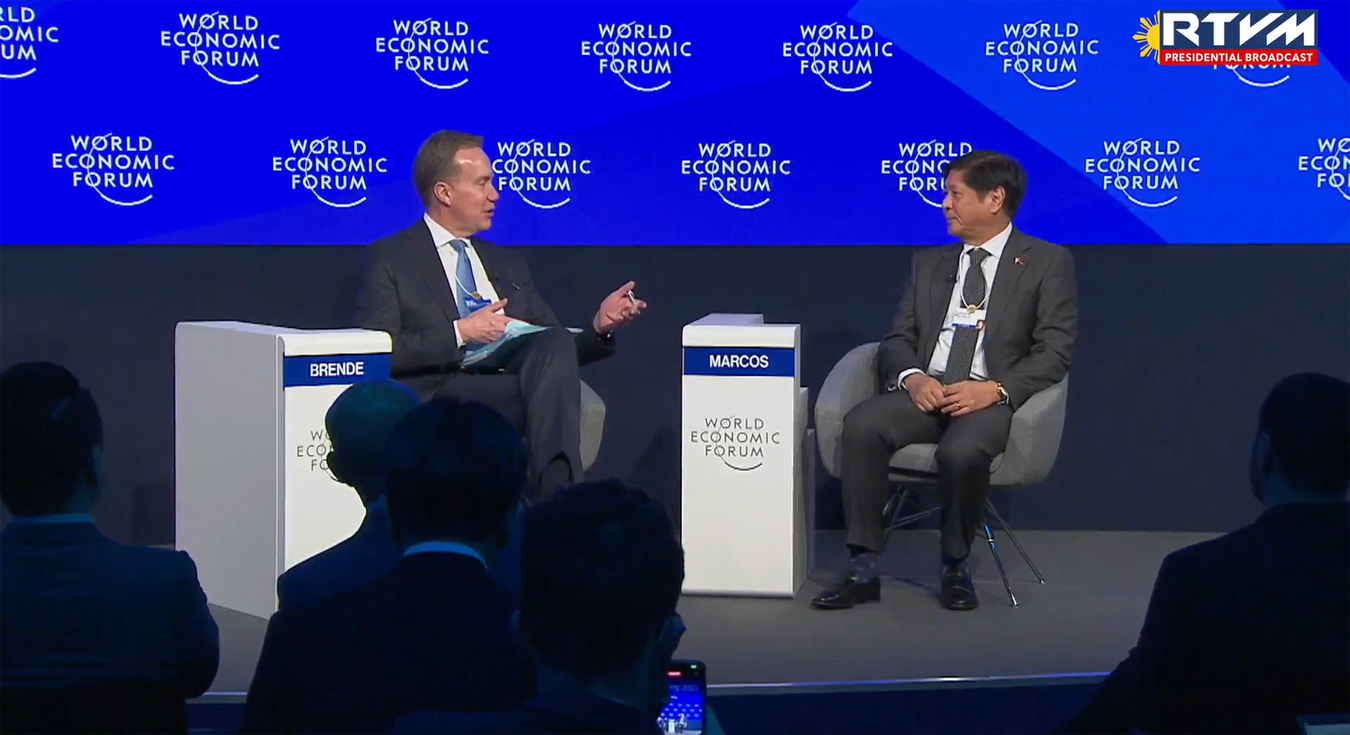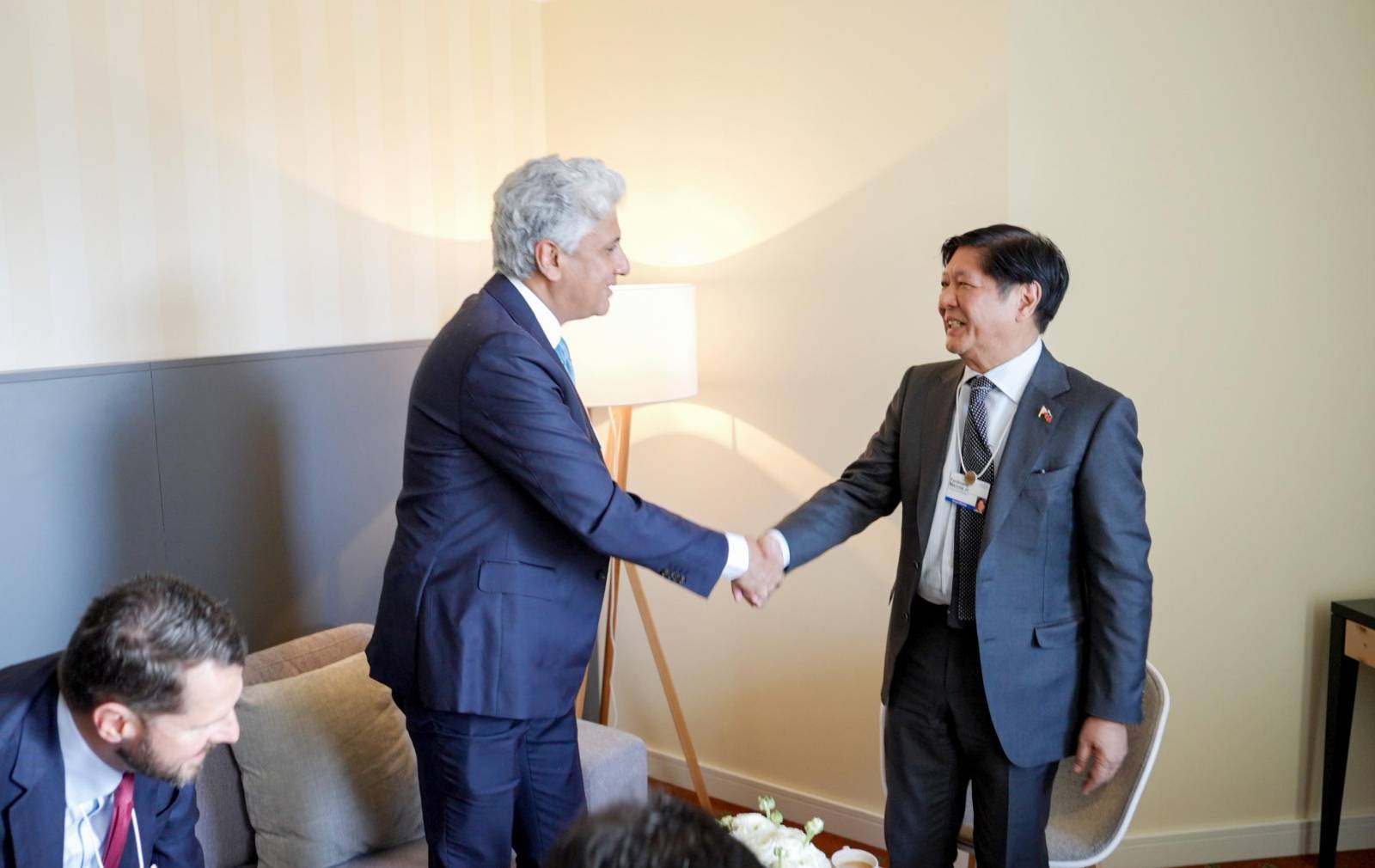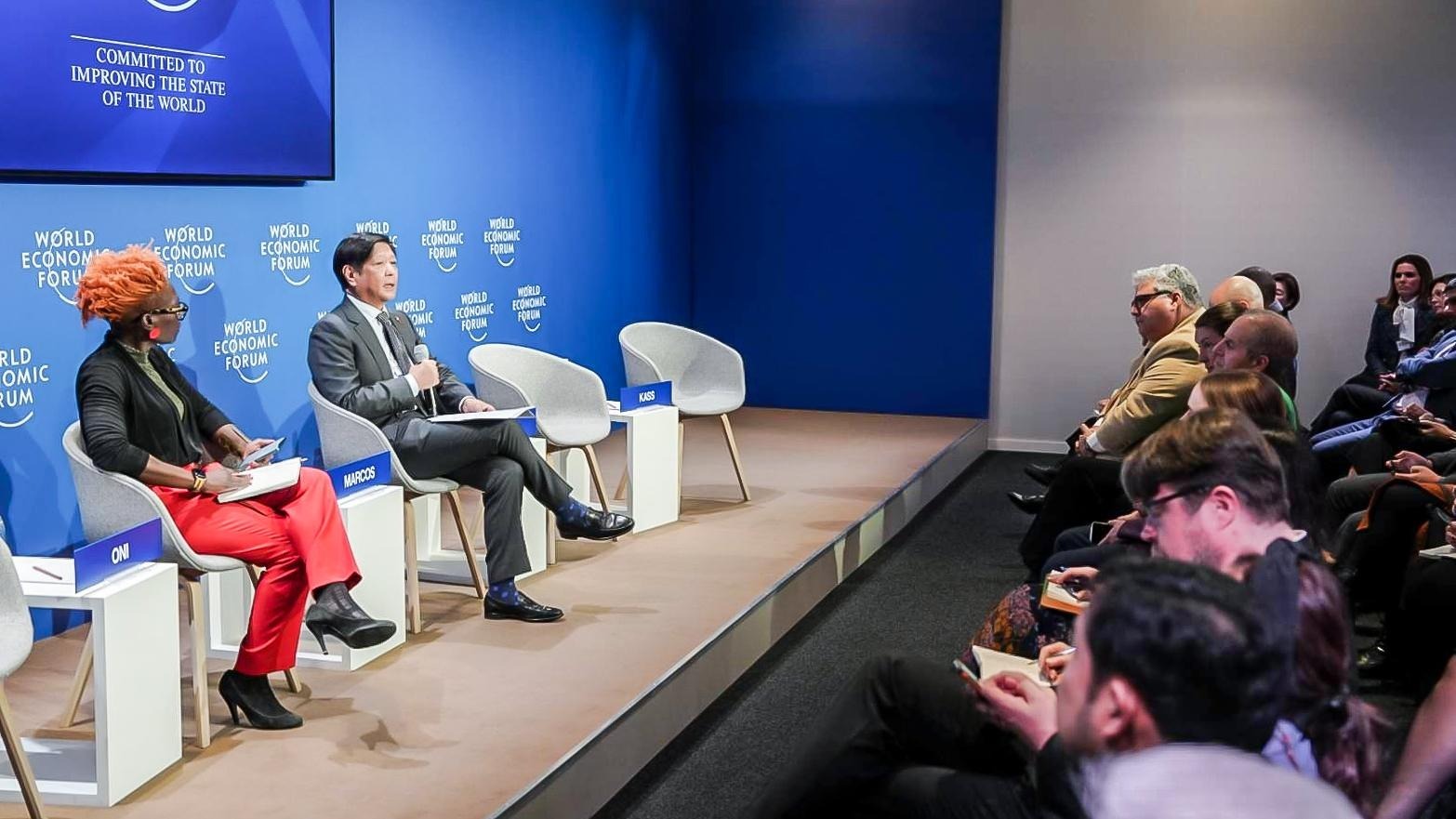Thank you very much and good afternoon, ladies and gentlemen. And thank you for your manifested interest in the Philippines.
So it’s clear that global challenges that we are facing have led to economic and trade fragmentations. In a bid to address these complex issues, we now pause and reflect - are our institutions still effective? What actions do we need to undertake to recalibrate those institutions? What mechanisms are necessary to fill the gaps and how do we forge essential new partnerships?
The COVID-19 pandemic and the current state of the global economy are a testament to the need for a higher call for cooperation: no one is completely safe and secure until everyone is safe and secure. No one can be left behind if we are to succeed. This is the kind of society that we envision for the Philippines, the same one we are striving for in our Development Plan, the Socioeconomic Agenda that we have put together, and our other national strategies.
I thank the multilateral, bilateral, and private partners, as well as those in the academe and civil society. Thank you to the forum’s organizers for this opportunity to highlight our work. And the World Economic Forum has provided us with an excellent program.
So allow me to anchor my message on the five highly relevant themes that the WEF has identified in our gathering for this year.
On Addressing the Current High Inflation, Low Growth, High Debt Economy in the context of New Systems for Investment, Trade, and Infrastructure
Well, according to IMF, projection for global economic growth in 2023 is a rather low 2.7 percent, slower than the 3.2 percent in 2022, which is already a significant decrease from 6.0 percent in 2021.
In the Philippines, the picture is slightly different and we project our economy to grow by around 7.0 percent in 2023. Our actual projection is 6.5 but there are signs that we might be able to surpass that.
Our strong macroeconomic fundamentals, fiscal discipline, structural reforms, and liberalization of key sectors instituted over the years have enabled us to withstand the negative shocks caused by the pandemic and succeeding economic downturns and map a route towards a strong recovery.
There’s a vast range of investment opportunities available such as in renewable energy, agro-processing, transportation, infrastructure development, amongst others, and several public-private partnerships in the pipeline.
The process of establishing our first-ever sovereign wealth fund is underway.
Such a fund is one tool among many in our efforts to diversify our financial portfolio, which includes our existing institutions pursuing investment that will generate stable returns, but also welfare effects spanning employment creation, improvement of public service, and a decrease in costs of economic activities.
We have seen inflation accelerating globally in recent months. We have deployed a number of non-monetary [measures] to address high inflation focused on a temporary relaxation of imports concerning various meat and grains.
The government has intensified its measures to help improve local food production and help the agricultural sector to strengthen and quickly recover from the deterioration of the agricultural value chain.
The government will pursue modernization and innovation programs, the development of new farming and fishing technologies, adoption of climate and disaster-resilient technologies, for the enhancement of the agricultural value chain system.
We also need to ensure that sufficient welfare measures are in place to cushion the impact of elevated inflationary pressures, especially towards the most affected and vulnerable sectors in our society.
As we convene here in Davos, efforts are likewise focused on strengthening the country’s engagement with trading partners and promoting the use of the country’s network of FTAs to maximize opportunities.
We stress the importance of economic and technical cooperation to assist the development of smaller economies and enable their participation, both of small businesses and economic segments with untapped potential, in the global economy and also of large-scale industrial development.
On Addressing the Current Energy and Food Crises in the context of a New System for Energy, Climate, and Nature
Our Development Plan puts together coherent strategic measures to hasten economic and social recovery towards inclusive and resilient development.
On Addressing the Current Industry Headwinds in the context of a New System for Harnessing Frontier Technologies for Private Sector Innovation and Resilience
Amendments to the Foreign Investments Act provide flexibility and transparency and liberalize the practice of professions, making it easier for foreign investors that require foreign talent to do business in the country.
The Corporate Recovery and Tax Incentives for Enterprises Act or CREATE Act provided much-needed relief for our micro, small, and medium enterprises or MSMEs through a reduction in the corporate income tax rate and ending investor uncertainty.
Amendments to the implementing rules and regulations (IRR) of the Build-Operate-Transfer (BOT) law will allow the government to leverage Public-Private Partnerships (PPP) and better direct resources to other critical areas of development, governance, including social protection measures.
The government also recognizes the importance of digitalization as a key driver for long-term --- for the long-term development and for our economic transformation to the post-pandemic global economy.
Finally, on Addressing the Current Social Vulnerabilities in the context of a New System for Work, Skills, and Care ...of MSMEs is the central theme of this administration’s digitalization efforts. We aim to empower and enable MSMEs to participate in the digital economy and thus significantly narrow the digital divide.
Finally, on Addressing the Current Social Vulnerabilities in the context of a New System for Work, Skills, and Care
Given the lingering impact of the pandemic and the accelerated changes in the landscape of work, we underscore the importance of education, skills development, lifelong learning to enhance the employability of workers, strengthening government interventions and public-private partnerships to improve access to employment opportunities, improving health systems and social protection to abate and mitigate present and future risks.
...and I’m proud to say is now considered as a model in the developing world, will spare the lives and livelihoods of our people.
Friends, ladies and gentlemen, it has been my privilege to provide you with an overview of the state of our economy and the myriad of opportunities awaiting to be unlocked.
If there is one thing I want you to take away from all these – it is that we have demonstrated and will continue to demonstrate our openness to work with partners and stakeholders to effect mutually beneficial relationships so as to arrive at our goal toward a resilient, inclusive, and sustainable future for the Philippines and for Filipinos.
Thank you very much. Mabuhay po kayo. [applause]
--- END ---
Watch here:
Location:




